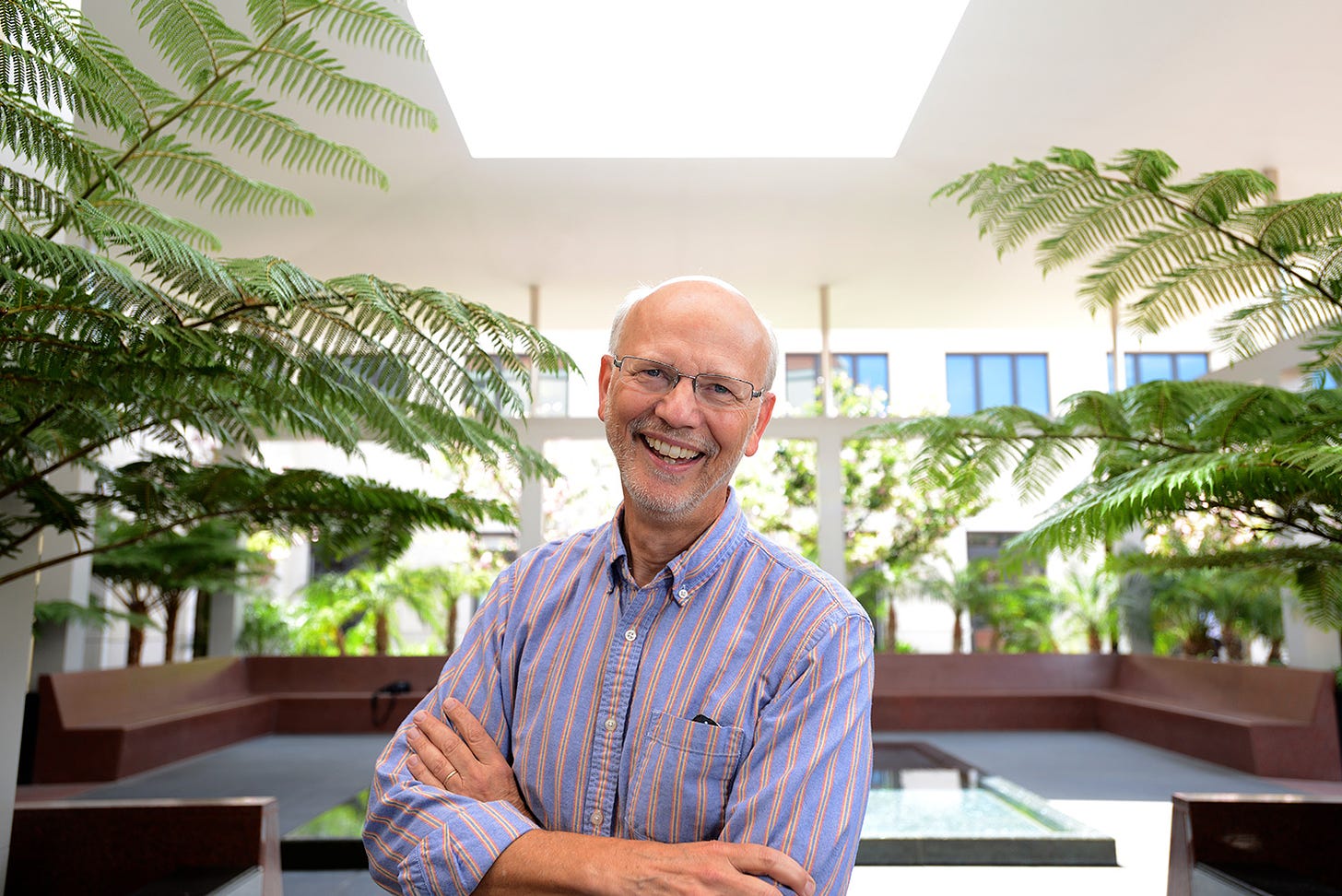This bonus newsletter is a monthly feature for paid subscribers. This one begins the second year of interviews! These extras showcase edited interviews with someone whose work intersects in some way with this newsletter’s focus—place, history, writing. I hope you enjoy this one and those to come.
Introduction
The academic organization that has felt most like home to me has been the American Society for Environmental History. At one of these meetings in the early 2000s, I met Char Miller, an environmental historian of the Southwest (expansively defined), the conservation movement, forestry, public lands and water, and much more. Char’s generosity, kindness, and enthusiasm are matched only by his legendary productivity. From afar, he has been a mentor and model to me as someone who seeks to bring historical insights and commentary to the world we live in today.
As you will see below, Char is not only a productive author and editor but also a dedicated teacher. The people he teaches includes not only his lucky students but the public who can find his words in newspapers and magazines, as well as the books he publishes regularly. One of those, The Nature of Hope (co-edited with Jeff Crane), includes an essay of mine that was supposed to be just a book chapter but turned into An Open Pit Visible from the Moon. This is just the sort of nurturing being around Char produces.
Note: This interview has been slightly edited for length and clarity.
Adam Sowards
Who are you, and how do you describe your work? How has that changed over time?
Char Miller
My name is Char Miller, and I have been teaching history as a discipline for the last 44 years. At this point in my career, I've been actually thinking a lot about that evolution and what it entailed, because the reasons I went to graduate school are different, obviously, from what I'm doing now.
I wanted to write, and the logical way to go about that process was to go to graduate school. (There were days when I was in graduate school that I triple thought that resolution!) I had some really good and really awful graduate professors. But the one thing that was constant about them is that each of them, in very different ways, did two things: one of which was to push my writing like crazy, and the other was as writers they demonstrated what good writing could be.
The thing I didn't anticipate going to graduate school, which I now adore more than perhaps anything, is teaching. I had no idea that I wanted to teach. I had no idea that teaching could be as fun as it could be, as it has been. The trope that we articulate in the academy about the relationship between teaching and writing, in my case at least, has come true.
My students have these really sharp ideas or criticisms of things that I've brought into the classroom, and all of a sudden light bulbs go off and I'm starting to think about, “What is this going to do for me? How is this going shape the way I think?”
Related to that is I've always asked students to write a lot of essays across the semester, which means a lot of revisions on their part and a lot of editing on mine. The irony is the more I teach writing effectively that way, the better my writing has become.
Because I see in somebody else's writing, “No. No. No. Wait. Wait. Wait. That sentence doesn't work and here's why it doesn't work. You've got three sentences, only two of which are related to one another.” So, I started looking at my own going, “No. No. No. You got two sentences here that work and one that doesn't.”
The students in effect are kind of a mirror for me, to help me understand what works and what doesn't work on a page. I've been lucky.
I count myself highly privileged to have had that kind of run for four decades. I look on these with unparalleled joy.
I count myself highly privileged to have had that kind of run for four decades. I look on these with unparalleled joy.
Adam
You're a writer, an editor, a historian, a teacher, and those all fit together pretty coherently in the answer you just gave. Has there ever been a time where one of those pieces doesn't quite cohere for you? Can you talk about how do you deal with that?
Keep reading with a 7-day free trial
Subscribe to Taking Bearings to keep reading this post and get 7 days of free access to the full post archives.




